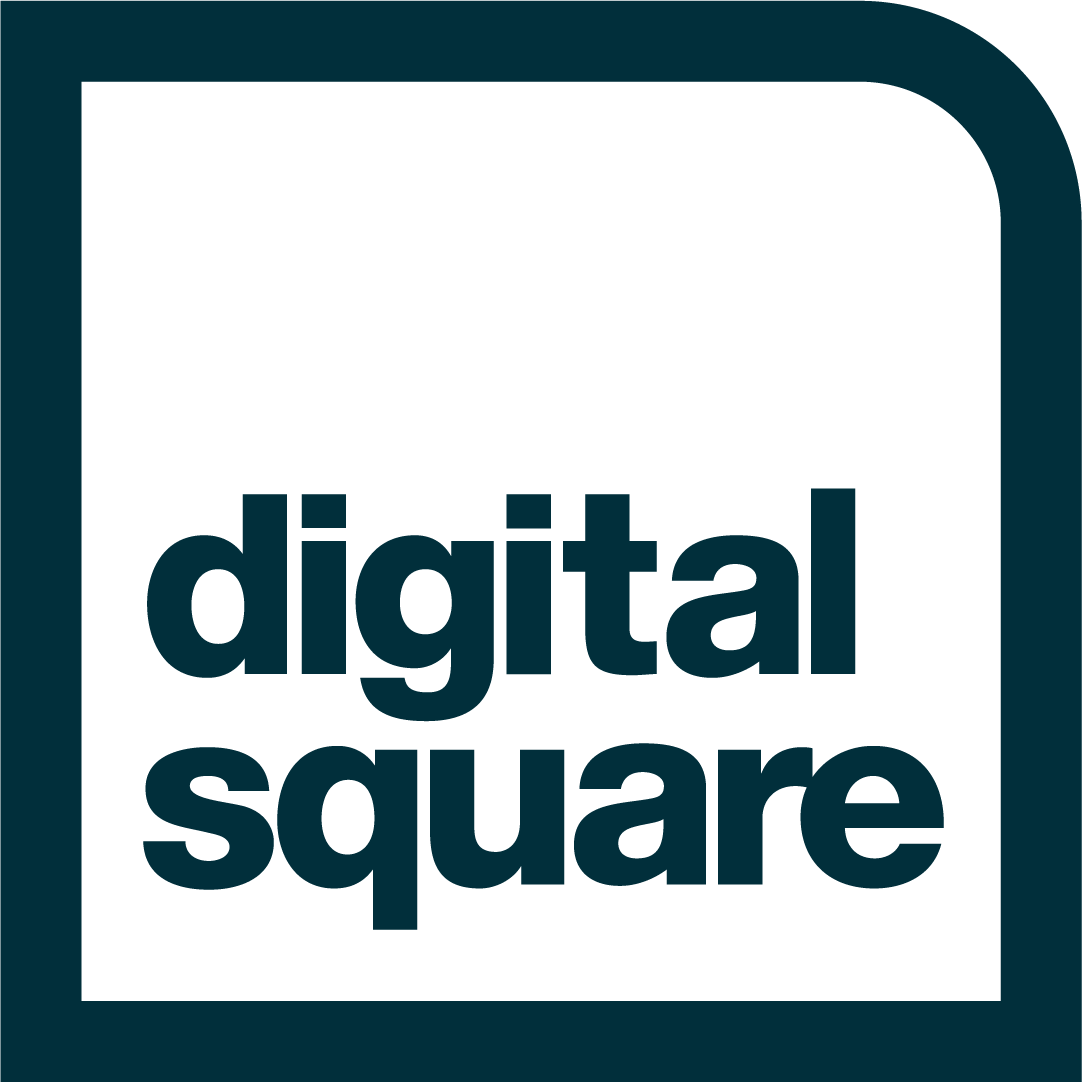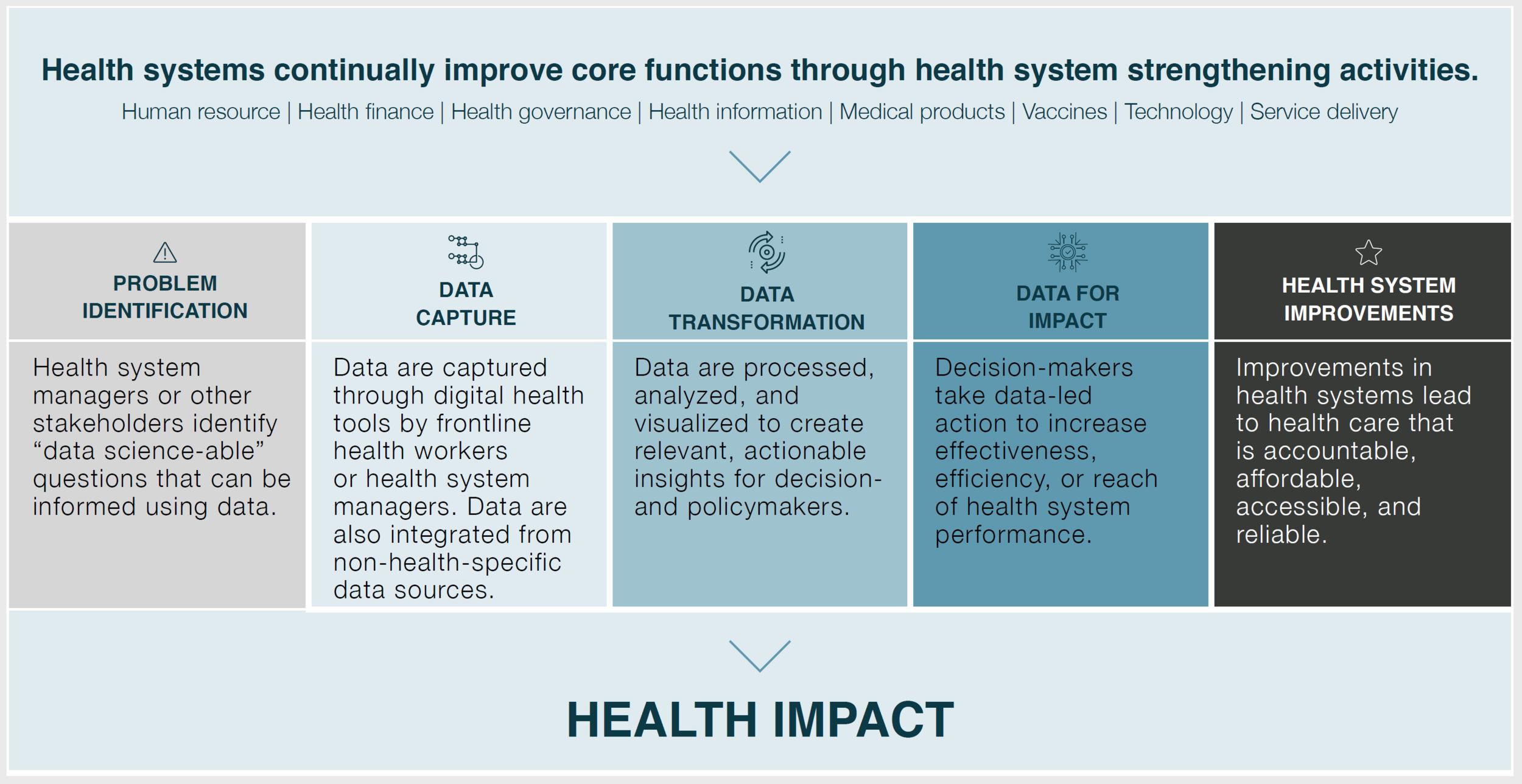Health Data Science Exchange: A concept to turn data into impact
By: Emily Carnahan and Anna Volbrecht
Community coordination is key to support country leaders as they integrate data science approaches into public health.
We live in an age of digital health transformation. Everyone—from patients to health workers to health system managers—can benefit from the connections and information that digital technologies provide. Countries are embracing digital systems and approaches as an essential way to improve and expand health services. However, these digital health systems bring with them a flood of data, which requires tools, resources, and capabilities to turn data into actionable insights.
When insights are generated from data, governments and health workers can uncover opportunities for improvement and contribute to more informed, evidence-driven action. For example, data captured in electronic immunization records can help health workers better protect kids from preventable diseases. Data from health information systems can create a nuance picture of health needs and services across a country. And data continue to be an essential tool for designing national and global responses to health emergencies as well as informing efforts to eliminate diseases like malaria.
But these benefits are not guaranteed. Data collection and reporting is only the first step in an ongoing cycle of data use. Making the most of data requires a full spectrum of tools, approaches, and expertise—a field known as data science. Those working with data must understand the challenges facing health systems and know what data exists both within and outside of health information systems. They must also understand what data can and can’t tell us, analyze data with rigor, and visualize insights in a way that is useful to decision-makers at every level of the health system. As more governments, donors, and health system managers call for data-driven health services, the ability to rapidly collect, analyze, visualize, interpret, and utilize data—that is, data science—will only become more important.
Learning from global health emergencies
The West Africa Ebola epidemic of 2014 served as a wakeup call for the digital health community. Fragmented digital technologies and data systems hindered the response—creating barriers to collecting, sharing, and using data. Since then, the global community has embraced coordination and collaboration as an essential principle of digital development. Through global standards, coordinating bodies, and new partnerships, the digital health community has laid a foundation for working better together.
This foundation is being tested with the COVID-19 pandemic. And while stronger digital health systems pivoted immediately toward pandemic response, we can more clearly seen the need for strong data tools and approaches to complement these digital systems. The pandemic has been an impetus to renew our focus on the quality and use of data within public health systems. Data provide an opportunity to deepen our understanding of how infectious diseases emerge, spread, and impact communities around the world.
There are many data science tools, guidance, and best practices in existence—but governments, donors, and their supporting organizations do not have a way to view the global landscape of these assets. And many of the most sophisticated tools are not available to health systems everywhere, particularly in low-resource settings. There is also surprisingly little evidence about how the application of data science tools can impact health outcomes.
Just as with digital health in 2014, more coordination is needed to increase the visibility into existing data science assets, identify common evidentiary standards, and build a shared evidence base for their impact. Cross-country collaboration could foster important opportunities to learn from the successful data science solutions. Building a shared understanding of available assets, their impact, and how they have been used in various contexts can empower country health leaders to choose, use, and improve data science within public health systems—and to show investors what these data science assets can achieve.
Conceptualizing Coordination
Since late last year, PATH’s Digital Square initiative has been exploring what a more coordinated data science community could look like. With support of the Rockefeller Foundation and a group of experts from across the sector, PATH looked at existing applications of data science in low-resource health systems and defined the value of data science in the public health sector.
The Health Data Science Exchange publication outlines the challenges of coordination and the value of improving this coordination. This publication proposes a vision of how countries, investors, and partners could share and learn in a virtual environment—strengthening the global community for data science in health.
This publication is only the start of the conversation. Governments are looking for ways to integrate data science into public health systems—and many organizations are looking for ways to do this in a more coordinated, collaborative fashion. We don’t have all the answers, but we want to help move the conversation forward.



